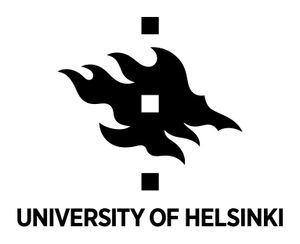Space physics from University of Helsinki gets its first-ever International Space Science Institute team

For the very first time space physics at University of Helsinki gets an International Space Science Institute (ISSI) team. It is Marie Curie Fellow Lucile Turc that will head an international space science team to investigate one of the great mysteries in space physics that has been under research for a long time without any answers. There has not been enough data or good enough models to do that, so far.
”This mystery is about how some electromagnetic waves travel through our near-Earth space, while no one knows why and how. We know where these waves come from, a very turbulent region just beyond the magnetic bubble formed by our planet’s magnetic field. We know that these waves somehow enter our magnetic bubble, because we observe them in there, and even at the Earth’s surface. But what happens in between has so far eluded us. These waves are critical e.g. in understanding the radiation environment,” Lucile Turc says.
Vlasiator code can describe the processes from which the waves originate
In the recent years, more and more scientific spacecraft have collected data in the different regions of near-Earth space. Also, novel supercomputer models, such as the Vlasiator code developed at the University of Helsinki, can now describe the small processes from which the waves originate in their global context, the whole near-Earth space.
Combining these measurements and modelling tools now makes it possible to track the waves throughout their journey towards the Earth, but requires a wide-ranging expertise.
“That’s where the ISSI team comes into play: it brings together scientists from different background, to finally solve the mystery of the waves’ propagation,” Lucile Turc says.
The International Space Science Institute (ISSI) is an organisation for a deeper understanding of the results from different space missions, ground based observations and laboratory experiments worldwide. The setting is multi- and interdisciplinary, and to foster international networking, the institute selects, after a highly competitive evaluation, international teams to reach out for new scientific horizons.
“To get an ISSI team means that the team leader may gather a group of exceptional international scientists from all over the world to work with,” Professor Minna Palmroth of University of Helsinki explains.
For more:
Global Study of the Transmission of Foreshock ULF Waves into the Magnetosheath and the Magnetosphere, Turc and Palmroth, on the selected science objective list by ISSI: http://www.issibern.ch/program/teams.html
The team’s website: http://www.issibern.ch/teams/foreshockulf/
Lucile Turc’s website: https://blogs.helsinki.fi/luciletu/
Contact:
Lucile Turc, @LucileTurc, +358 50 311 9499, lucile.turc@helsinki.fi, (in English), for contact in Finnish, Minna Palmroth, @MinnaPalmroth, +358 50 311 1950, minna.palmroth@helsinki.fi
Contacts
Minna Meriläinen-TenhuPress Officer
Tel:+358 50 415 0316minna.merilainen@helsinki.fiImages
About University of Helsinki
 University of Helsinki
University of HelsinkiP.O. Box 4 (Yliopistonkatu 3)
00014 University of Helsinki, Finland
http://www.helsinki.fi/en
The University of Helsinki is one of the world’s leading multidisciplinary research universities, renowned for its high-quality teaching, research and innovation. It is proud to be constantly ranked among the top one hundred best universities in the world.
The university has an enrollment of over 35 000 students and it offers a wide range of Master’s programmes taught in English. Established in 1640, the University of Helsinki is the oldest university in Finland.
Subscribe to releases from University of Helsinki
Subscribe to all the latest releases from University of Helsinki by registering your e-mail address below. You can unsubscribe at any time.
Latest releases from University of Helsinki
AI boom requires new benchmarks for natural language understanding6.2.2024 08:00:00 EET | Press release
Aarne Talman’s timely research delves into the meaning of language understanding, its measurement and the weaknesses of current measurement benchmarks.
The Helsinki Collegium for Advanced Studies is a home base for international researcher encounters and a pioneer in the humanities and social sciences in Finland10.6.2022 09:00:00 EEST | Press release
The Helsinki Collegium for Advanced Studies at the University of Helsinki celebrates its 20th anniversary on 15 June, with star philosopher Martha Nussbaum as the anniversary speaker.
Globalization, Sustainability and the War in Ukraine - How does sustainability science explain past and future trajectories?31.5.2022 08:54:56 EEST | Press release
In February 2022, the global peace was shattered by the Russo-Ukrainian conflict that escalated into aggressive Russian invasion into Ukraine. While the situation is widely discussed in the media, not much attention has been given to the perspectives of sustainability science.
University of Helsinki's new open AI in Society MOOC will consider technology´s issues and challenges30.5.2022 09:03:41 EEST | Press release
University of Helsinki's Una Europa AI in Society Massive Open Online Course (MOOC) creates critical awareness of the basics of AI and its related ethical issues as well as its impacts on different sectors of society, including justice and jurisprudence, health care, and democratic participation. The MOOC examines how society could cope with these issues, and how the societal impact and relevant values can be considered in design, implementation, and deployment of AI.
University of Helsinki offers online course Ethics of AI in Finnish and Swedish23.11.2021 09:00:00 EET | Press release
The open and free online course Ethics of AI is designed to help us understand what it means to use AI ethically, and what it requires from society and individuals. The course uses examples of practical issues from its collaboration partners.
In our pressroom you can read all our latest releases, find our press contacts, images, documents and other relevant information about us.
Visit our pressroom
